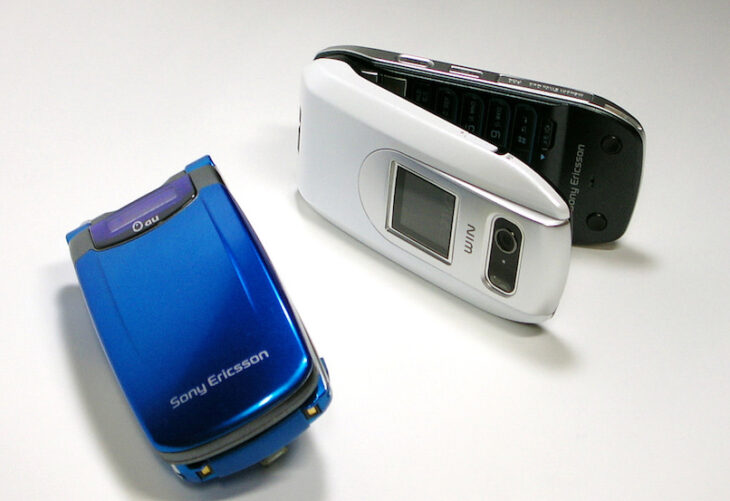Podcast: Play in new window | Embed
Listener Jamie in Tampa, Florida has a question about older phones
Jamie asked: What are your thoughts on flip phones? Are they on their way out or are flip phones making a comeback?
in Japan in particular smartphone sales have stalled, but feature phone sales keep growing, so in some ways they’re kinda making a comeback.
It’s understandable too. Smartphones are very annoying devices, they are constantly vibrating and they keep making non-stop noises to notify us of 10,000 things that we don’t want to be notified about, all with the discomfort of an overly big package, and with the battery life of a phone from 1993.
It’s no surprise that some people are embracing phones that are more comfortable, and that serve us rather than demand that we serve them.
Having said that, they’re not making any real comeback, and they probably won’t. Being immune from getting lost, and being incapable of not knowing something we want to know is something we’ve already gotten used to, and we won’t give that up.
Smartphones are not going to lose any serious ground, even if some lucky few make the choice to switch to less oppressive older phones.
Joe in Ontario, Canada listening via shortwave wants to know about powerline networking and potential interference
How asked: I hope you can give me some good advice on the use of power line networking, I am using a set of BELKIN F5D4077 VideoLink Powerline Adapters for one of my cameras because it’s too far to run cat5 and I don’t want wi-fi. There is only one outlet in the house where the base unit will work and even there it blinks amber so it is at the range limit. Problem is I cannot listen to AM or shortwave radio as the noise is absolutely dreadful and completely overwhelms the radio regardless of where it’s plugged in and even my transistor radio is unusable. I was already getting plenty of noise from all my switching power supplies but this thing beats all.
We’re sorry to hear about your problems with powerline networking and we hope we’re able to help you sort things out. To start, let’s review a few things about how powerline networking functions. It transmits network data over your power wires, taking the place of traditional Ethernet cables. As you mentioned, it can run much farther than Ethernet can, and the new HomePlug AV2 standard allows for speeds up to 1200 megabits per second, which is slightly faster than Cat 5e’s top speed of 1000 megabits per second.
But there are some potential pitfalls to watch out for. Adapters can only communicate when they are on the same phase of the electrical wiring.
But there are some potential pitfalls to watch out for. Adapters can only communicate when they are on the same phase of the electrical wiring. This isn’t an issue with most residential users, but it can come into play when you have a commercial property, some remote buildings, or a very large house. An electrician can tell you how many phases of the mains are running through your location, if you have any questions about that.
The other thing that causes problem is noise. Plain and simple, powerline network adapters cause it and they also are sensitive to it. Range is also an issue. Theoretically it is unlimited, but practically it’s affected by the AC resistance of the wire being used, which in turn has to do with the gauge of the wire and the amount of voltage being carried over it. In short, there are a lot of variables.
Newer model adapters like Netgear’s PLP1200+ or ZyXel’s PLA5405 are resistant to noise on the power line, but nothing is perfect. As far as CAUSING noise, you’re really out of luck there. Powerline network adapters inject a data signal on your wiring and that signal will be picked up as RF interference by most radios.
If the radios are getting the interference over their own connection to the power, then isolating them with a power strip or UPS that features good EMI/RFI filtration will get rid of the noise.
If the radios are getting the interference over their own connection to the power, then isolating them with a power strip or UPS that features good EMI/RFI filtration will get rid of the noise. But if they are simply picking it up over their antennas from the wires in the wall, you’re not going to have any remedy for that.
Powerline networking, in our experience, either simply works like magic with no problems at all, or it’s plagued by gremlins that you have to spend time sorting out. It sounds like you have the gremlins.
I hope that something we’ve shared with you proves useful. Good luck!


